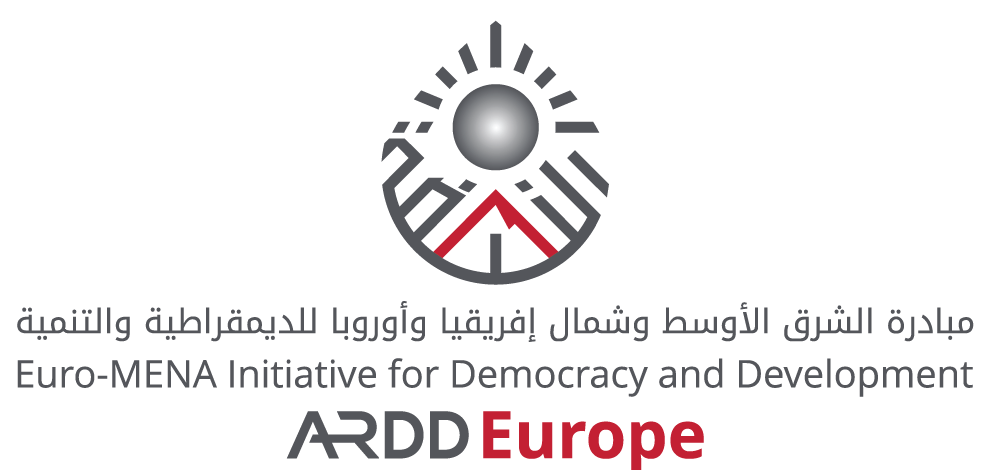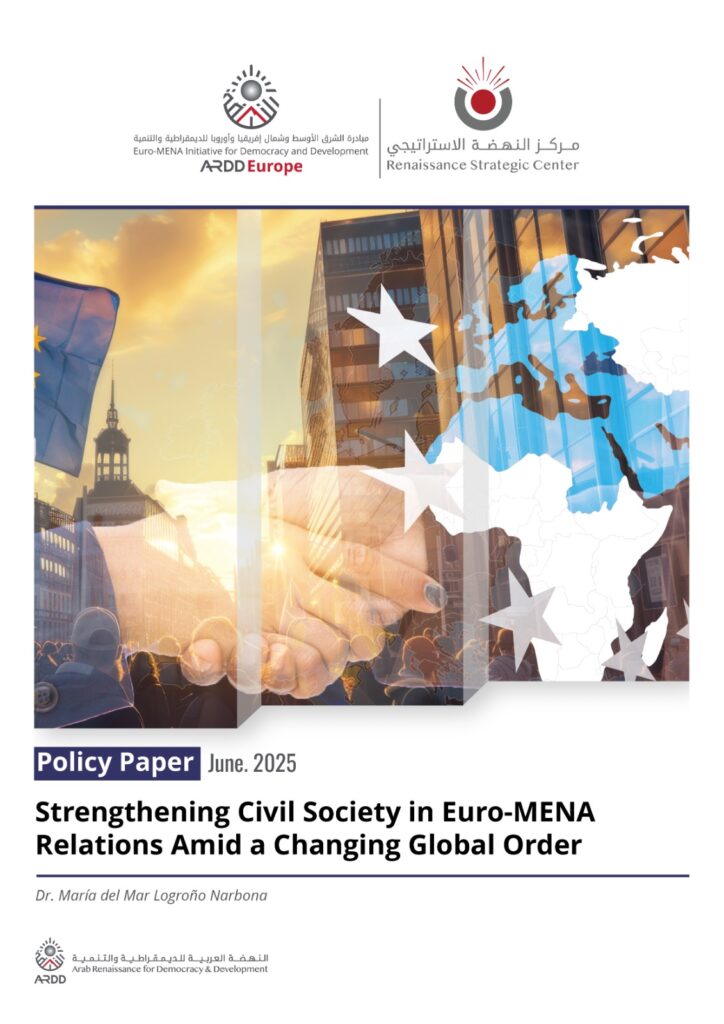In 2016, Volker Perthes, a German foreign policy expert on MENA, predicted that Donald Trump’s first presidency would weaken liberal values, cause a decline in multilateral cooperation, and a shift towards economic nationalism. Eight years later these anticipated shifts have materialized, with the U.S. prioritizing transactional diplomacy, sidelining allies in key negotiations, and embracing protectionist trade policies. President Trump’s return to office is challenging the foundations of the post-Cold War international order and compelling Europe to redefine its global role.
In this evolving context, the EU’s foreign policy faces a critical choice: continue a securitized, pragmatic approach that prioritizes stability at the expense of governance reforms and human rights promotion; or reinvest in rights-based partnerships that uphold European influence and credibility as a global advocate for human rights and the rule of law.
This policy brief argues that supporting civil society in MENA, and more broadly across the Global South, is not only a moral imperative but a strategic shift for the EU’s long-term security and diplomatic influence. Over the past two decades, the EU’s approach to MENA has moved from a foreign policy centered on democracy promotion and civil society engagement to one dominated by migration control, counterterrorism, and energy security. This shift has deepened the EU’s credibility gap in the Global South, particularly in MENA, where perceptions of European double standards have eroded trust. The EU’s divided and contradictory approach to the war in Gaza, in contrast to its firm stance on Ukraine, has reinforced long-standing grievances about the selective application of international law and human rights.
As the global order fractures and new power alignments emerge, the EU must go beyond rhetoric and demonstrate a genuine commitment to a rights-based order. Rebuilding credibility requires prioritizing justice, human dignity, and inclusive partnerships, not just in words but through concrete policy shifts that align with its foundational principles.
This brief reviews the EU foreign policy shifts in its Southern Neighborhood, the challenges facing civil society in MENA, and the policy options available to the EU for restoring a balanced and strategic approach that integrates security and economic interests with democratic governance and human rights protections.

